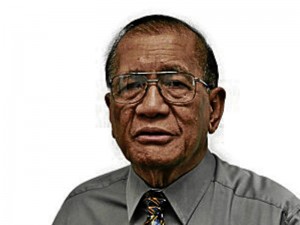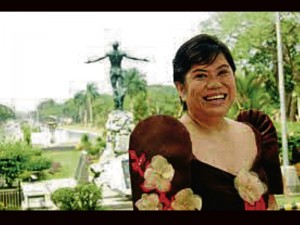Singing lectures for a healthier heart
This weekend a small group of Filipino performing artists will fly to northern Italy to conduct a series of musical shows that the Italian audience will surely find unique.
The grandiose production will not tackle the usual themes of love, hate, betrayal or even revenge. Instead, it will deal with matters of the “heart” as it will teach how to live longer and better lives, free from problems related to heart disease.
Indeed, this is a one-of-a-kind musical cum lecture conceived by the founding president of the Foundation for Lay Education on Heart Diseases (FLEHD), Dr. Adolfo Bellosillo.
It’s about time
“After doing close to 400 performances all over the Philippines, I believe it’s about time for us to bring the ‘How to Remain at Heart: The Musical’ to other countries and show how we Filipinos spread the word about heart disease prevention,” Bellosillo explained.
Article continues after this advertisementThe foundation is primarily focused on educating the Filipino community with regard to heart and related diseases. FLEHD believes that with the cost of medical care already staggering and good medical care beyond the reach of the general population, prevention serves as a more cost-effective means to live longer and free of debilitating if not deadly heart disease.
Article continues after this advertisementFor this particular performance, first time outside the Philippines, Bellosillo informed that an Italian translation will be flashed on screen to accompany the English dialogues.
“We are indeed, very grateful to Beatrice Basaldella, wife of one of the Italian doctors whom I met in a seminar here, who painstakingly translated the libretto into Italian,” Bellosillo said.
Most of the performances of the group will be held within the municipality of Casarsa della Delizia: Teatro Pasolini, the Auditorium Comunale Travesio, although there will also be a few to be held in S. Vito Hospital
at the University of Turin, Teatro Solvay at Rosignano Solvay and Teatro Roma in Castagneto Carducci.
The musical revolves around the character JJ, a 36-year-old executive who suddenly died of acute heart attack while in the middle of an early morning exercise.
“JJ could be any of us: an overachiever born to parents with a family history of sudden death from heart attack and stroke, a heavy cigarette puffer, a nightclub habitué, hypertensive and hated medical checkup. He could have achieved so much more had he not died,” Bellosillo said.
Cast, crew
The musical, directed by Bellosillo (the doctor wrote the lyrics and libretto), is led by Jai Sabas Aracama, a noted mezzo soprano and directress of the University of the Philippines Concert Chorus. Other performers include Queenie Ann Moreno (soprano), Ruel Madriaga (tenor), Cesar Ryan Santos (tenor) and lawyer Cresencio Fortunato Balasbas (baritone) and ballet dancers Joanna Isabel Galeste and Mark Joseph Pineda. Rafael Oredina serves as the technical assistant.
All the 32 musical numbers were arranged by Jeremiah Calisang, a holder of a Master’s degree in voice from the UP College of Music. Ronilo Jaynario did the original choreography.
Rather than giving formal lectures behind a rostrum, Bellosillo would rather use the performing arts: “Filipinos love to sing, so I thought what better way to get my message across is to put catchy tunes on my lectures. Interestingly, my audience remember a lot of the lessons imparted during the performance,” Bellosillo said.
The songs of “How to Remain at Heart: The Musical” focus on two most common heart ailments: hypertension and coronary artery disease.
“Heart disease is often described as a rich man’s disease because an indulgent lifestyle seems to promote it. But in fact, many indigent Filipinos suffer from rheumatic heart disease. Yet these cases are underreported and remain undertreated due to a lack of awareness,” the doctor related.
According to him, prevention requires the active participation of the patient and FLEHD strongly believes it is up to the doctor to educate the patient in whatever way possible. “The goal of these performances is to let more and more people know how to prevent stroke and heart attack and recognize its early warning signs.
In 2009 an earlier form of the musical called “20 Original Songs for the Heart” was among the finalists of the the Louise Lown Heart Hero Award, an international body that recognizes innovative, preventive approaches to promoting cardiovascular health in developing countries as well as communities where resource is limited.

